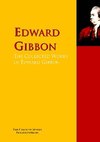Loe raamatut: «Private Letters of Edward Gibbon (1753-1794) Volume 1 (of 2)», lehekülg 16
163.
To J. B. Holroyd, Esq
Pall Mall, January 16th, 1773.
Dear H.,
Mrs. G. fastened upon me as soon as I got to town, and was in some measure the cause of some of the blessings you might possibly honour me with when Yesterday's post arrived at Sheffield. Mrs. G. succeeds without a Will to Mr. Scott, and though she certainly finds a sum of money, yet I believe it turns out very short of her expectations. She means to return to Bath, but you will still I fancy find her here.
I have not as yet got you either footman or stables. The latter seems almost impossible. In at least twenty yards, my man Henry has received the same answer; that it is not worth their while to let them for less than a year: so that I fear you will be reduced to a livery stable. In consequence of the Advertisement I had five or six Candidates at my Lever, but none tolerable. We shall see enough. Goose or Couse (what do you call him?) waited on me yesterday morning; but although the Sultan referred us to his Vizier, he had not signified to him that the House was agreed for. I assured him it was; he believed me, and on the morning after your landing will wait on you with the Inventory and a short paper. The maid, a most usefull Servant as he says, is apprized of your coming and expects your servants. So much for business, and indeed so much for everything, for I have kept so close to Mrs. G. that I don't know a syllable of news. – If the Fosters are still with you salute them. Tell Mr. Harry that Mrs. G. has not the honour of being acquainted with any Monkey whatsoever. Mrs. H.'s watch is in the hands of Trajan, some relation I presume of the Emperor.
Tandis que tristement sur ce globe qui balance,
J'appercois à pas lents la mort qui s'avance;
Le Francois emporté par de legers desirs,
Ne voit sur ce cadran qu'un circle de plaisirs.
Mrs. H. when in town will, I fancy, be of the Frenchman's way of thinking. Ainsi soit il. Adieu – Yorkshire arrived in town very gratefull and not entirely dislocated.
164.
To his Stepmother
Bentinck St., February 11th, 1773.
Dear Madam,
COMFORTS OF HIS NEW HOUSE.
Though I cannot applaud your punctuality in giving me one line the first night of your arrival, yet a very excellent Cheese had already informed me that you had reached Marlborough, and were not unmindful of me. I still waited from post to post till I could date my thanks from my own house in Bentinck St. After some expence of temper occasioned by the cursed delays of upholsterers, I am got into the delightfull mansion and already enjoy the long wished comforts of it. May you soon be settled as much to your satisfaction at Bath as I am in London. Sir Matthew is expected here to-morrow, but I hear nothing of Eliotts; I suppose they will come up for the winter about the beginning of May. I am so unfashionable as not to have fought a duel yet. I suppose all the Nation admire Lord B.'s behaviour.183 I will give you one instance of his – call it what you please. L. T.'s pistol was raised, when he called out, "One moment, my Lord – Mr. Dillon, I have undertaken a commission from the French Embassador – to get him some Irish poplins – should I fall, be so good as to execute it. Your Lordship may now fire." L. B. is certainly quite out of danger, but the cure will be long and painful.
I am, Dear Madam,Ever yours,E. G.
165.
To his Stepmother
February the 27th, 1773.
Dear Madam,
THE DELIGHTS OF HIS OWN HOME.
After having been silent longer perhaps than I ought to have been, suffering post after post to slide away with a firm resolution to write the very next (and what is one day's difference?), I am now as usual driven to the sound of the bell and the verge of eleven. Will you for once accept as a letter the information that I am perfectly well, and that I only wish you as happily settled in a house at Bath as I am in London? Holroyd admires Brook Street, but not the side where his father lives.184 The opposite side has a fine prospect from the back rooms.
Adieu! Dear Madam, and either in long or short letters, believe me,
Ever yours,E. G.
166.
To his Stepmother
London, March 25th, 1773.
Dear Madam,
You are clearly in the right. If seldom, long letters: if short ones, often. 'Tis perfectly equitable, but now to my old reasons there is a new one added, – this abominable fine weather which will not allow me a quiet hour at home, without being liable to the reproaches of my friends and of my own conscience. It is the more provoking as it drives me not out of a stinking Apothecary's, but from my own new clean comfortable dear house, which I like better every week I pass in it. I now live, which I never did before, and if it would but rain, should enjoy that unity of study and society, in which I have always placed my prospect of happiness. Though I do not find my expences rise higher than I calculated that they would, I have not yet practised much of that Economy with which the voice of Fame has complimented me: but at least I keep (in general) better hours than I ever yet could bring about in London.
With regard to the Cornish journey. I will fairly lay before you the state of my mind. As we are often tempted to sacrifice propriety to inclination, I am afraid that I should have deferred it another summer in favour of Derbyshire. Your company has fixed me, but I thought when you was in town we had settled it for the autumn. If you wish to be early in your visit, I will calculate that the Autumn begins with August, and will then attend you at Bath, or if you chuse to go still earlier, I will bring you back; for I fancy my stay at Port Eliott will hardly be so long as yours. I hear nothing of the Lord of it, but I know that the copper Lockwood impatiently expect him in town.
Holroyd, who begs to be remembered to you, has got a new scheme of regulating the Tythe-laws, holds meetings, writes declarations and employs his great soul and his little body entirely on the business. Mrs. Porten is, I much fear, in a very bad way: her old complaint, but the fits more violent and more frequent. We shall not possess her long.
This morning, the fact is certain, an Address was delivered to Lord B[ellamont] from the Grand Jury of the County of Dublin, thanking him for his proper and spirited behaviour. Incomparable Hibernians! A Judicial Body appointed to maintain and execute the Laws publicly applaud a man for having broke them.
I am, Dear Madam,Ever yours,E. G.
167.
To his Stepmother
Bentinck Street, May the 5th, 1773.
Dear Madam,
Your kind letter and just reproaches, instead of making me do immediately what I had resolved to do every post-night for a fortnight before, put off my letters two or three days longer. The Snail of Love-lane, I saw this morning, and he tells me that he had sent you a satisfactory explanation of his conduct; if it appears otherwise to you, and that his delays are still inconvenient to you, I beg that you would draw upon me, and hope you are persuaded that, as I have two hundred pounds in Fleet Street, you are welcome to one of them.
With Holroyd's assistance, who is determined to extricate me out of all my troubles, the sale of Lenborough by auction at Buckingham is fixed for the 24th of this month. He goes down with me, and the Estate has been carefully divided into four lots, rising successively in value above each other, so that, if any parts should remain upon my hands a while longer, they will be the best. These precautions are requisite in the present scarcity of money, which gives me little hopes of selling the whole together, and even the sanguine Holroyd is apprehensive that I shall be obliged to buy it in again and provide for the mortgage by some other measures, at least of the procrastinating kind.
A HAPPY MAN.
Were it not for these worldly cares, I should be a very happy man. I never formed any great schemes of avarice, ambition or vanity: and all the notions I ever formed of a London life in my own house, and surrounded by my books, with a due mixture of study and society, are fully realised. I have seen the Eliotts several times, and think he and I take to one another very well this year. They both express great pleasure at the thoughts of seeing us in Cornwall. I shall be glad to know whether the time I mentioned will suit. I am obliged to you for your invitation to Bath, and am lost in admiration at the size of your house, which enables you to spare a bed-chamber and drawing-room; tho' after all, I can offer you the same apartment in my little Palace, which is absolutely the best house in London. The Waste-coats are sincerely pretty, without gratitude or compliment. The Madeira I have got from Oliver; it is incomparable, but saddled with nine or ten pounds due for cellarage ever since Mr. Scott's arrival in England. Where was the Rum, for Oliver knows nothing about it? Apropos the Beriton pictures; should you think it worth while to frame and put them up at Bath? They will not suit my rooms and will be soon spoilt in a Lumber-room. If you do not chuse them, I believe I shall let them take their choice at Christie's, though I find by a very good painter's opinion that we much over-rated their value. My compliments to the Goulds, &c. Poor Mrs. Porten has long and frequent attacks, but her spirits are still good.
I am, Dear Madam,Ever yours,E. G.
168.
To J. B. Holroyd, Esq
Boodle's, May 11th, 1773.
Dear H.,
I hope you got safe to S. P.; that the most amiable Ram, and the less admirable Bull, are both in health and spirits; that Maria remembers me; and that Mrs. H. is quietly metamorphosed from a Lady of the town (an awkward expression) into a country Gentlewoman. We dined to-day at the Romans, seven, who all talked of you – Lord A. was very happy to meet Holroyd, and enquired whether Wilbraham was gone into Sussex. Is your plan settled? when do you come? and are you resolved to take a bed in Bentinck Street? You will disapoint me extremely if you do not, for it is a point of ambition I have set my heart upon.
*I am full of worldly cares, anxious about the great 24th, plagued with the public Advertiser, and distressed by the most dismall dispatches from Hugonin. Mrs. Lee claims a million of repairs which will cost a million of money.
THE EAST INDIA COMPANY.
The House of Commons sat late last night. Burgoyne made some spirited motions "that the Territorial acquisitions in India belonged to the State" (that was the word); "that grants to the servants of the Company (such as jaghires) were illegal; and that there could be no true repentance without restitution."185 Wederbourne186 defended the Nabobs with great eloquence but little argument. The motions were carried without a division; and the hounds go out again next Friday. They are in high spirits; but the more sagacious ones have no idea they shall kill. Lord North spoke for the enquiry, but faintly and reluctantly. Lady C. is said to be in town at her mother's, and a separation is unavoidable; but there is nothing certain. Adieu.*
Sincerely yours,E. G.
169.
To his Stepmother
London, May the 27th, 1773.
Dear Madam,
I find that I am not the only lazy being in the Universe, and my friends without any diminution of regard can leave me at least three weeks without a line, and totally at a loss what to answer when I am questioned whether they are got into their new house, &c. However, as you will be in suspence about the 24th instant, I must for once break an old rule and tell you that Holroyd accompanied me to Buckingham in his way to Ireland. The auction was very cold, as all auctions are at present, and the highest sum that was bid was £19,000 by an Agent of Lord Temple. By the advice of H., my faithfull friend and Minister, I was immoveably fixed at £20,000, which, all things considered, is not amiss. The Agent had gone to the utmost of his instructions, but I have very good reasons to believe, that either from him or some other person I shall get the money very soon. Till that event happens I shall not be easy.
The Snail of Aldermanbury has promised to send you down the Deed transferring from Bucks. to Hampshire. I hope it will be satisfactory to you.
I am, dear Madam,Ever yours,E. G.
170.
To J. B. Holroyd, Esq
June 12th, 1773.
Dear H.,
A BUYER FOR LENBOROUGH.
*Lenborough is no more. – Lrd. Temple acted like a Jew, and I dare say now repents of it. In his room Way found me a better man, a rich brutish honest horse Dealer, who has got a great fortune by serving the cavalry. On Thursday he saw Lenborough, on Friday came to town with R. W., and this morning at nine o'clock we struck at £20,000, after a very hard battle, in which he squeezed from me a promise of throwing him back a hundred for trouble, &c. As times go I am not dissatisfied; the worst of it is the time of payment, which I could not prevail on him to fix sooner than November, though he gave me hopes of getting it somewhat earlier. Gosling must wait till then. R[ichard] W[ay] and the new Lord of Lenborough (by name Lovegrove) dined with me; and though we did not speak the same language, yet by the help of signs, such as that of putting about the bottle, the natives seemed well satisfied.
The whole world is going down to Portsmouth,187 where they will enjoy the pleasure of smoke, noise, heat, bad lodgings, and expensive reckonings. For my own part, I have firmly resisted importunity, declined parties, and mean to pass the busy week in the soft retirement of my bocage de Bentinck Street.
Yesterday the East India Company positively refused the Loan, – a noble resolution, could they get money anywhere else.188
They are violent, and it was moved, and the motion heard with some degree of approbation, that they should instantly abandon India to Lord North, Sujah Dowlah, or the Devil, if he chose to take it.*
My respectfull salutations wait on Madame. If with the handkerchiefs she was to bring me over some Irish linnen for shirts, it would be an action worthy of her humanity. Adieu.
E. G.
171.
To his Stepmother
London, June 15th, 1773.
Dear Madam,
At length the Buckinghamshire transaction is at an end. Lord T., after tormenting himself or me to very little purpose, absolutely refused to give more than £19,000, but a Mr. Lovegrove, an Oxfordshire man, who has made his own fortune, applied to Mr. Richard Way, viewed the Estate, and after a long altercation agreed with me at £20,000, and an excellent purchase he has made, though the weight of interest, the importunity of the Goslings and the scarcity of money oblige me to be satisfied with what I have been able to get for it. By Michaelmas I shall be a clear, though a poor man; since, when I have discharged the Mortgage and cancelled the bond which I gave Mr. Scott for the Clarke's money, very little indeed that I can call my own will remain of that noble estate. My only comfort, and a very cold one, is that, though these incumbrances must be paid at my expence, they were not contracted by my imprudence. But to leave these melancholy reflections on a subject which is now irretrievable.
Newton will I believe send you down the Deed engrossed in a day or two. The confidence, Dear Madam, which you express in me, pleases without surprizing me, and I hope the business will be settled to your satisfaction. Apropos you forget your half-year, which now at least you must allow to be due. Do you chuse to draw upon me, or shall I send you the money in Bank Notes?
By what I can collect at Spring Gardens, Mrs. E. will go into Cornwall in a few days, but will not pass through Bath in her way. Eliott stays something longer, but, as well as I can judge, the beginning of August will suit them perfectly well. I therefore still persist in my design of attending you about that time, and am impatient to see both your new house and its owner. I wish you could see how comfortable I am established in mine.
I am, Dear Madam,Ever yours,E. G.
172.
To his Stepmother
Bentinck Street, July 13th, 1773.
Dear Madam,
A VISIT FROM DEYVERDUN.
You will excuse my silence when I tell you I have a friend with me, who takes up the greatest part of my last Friday se'nnight. Mr. d'Eyverdun most agreeably surprized me by walking into my library. His young Lord Chesterfield has come over for a few weeks, and as he went down almost immediately with Lovel Stanhope to the Duke of Chandos, my friend has established himself in my house during the too short period of his visit. You may easily suppose how much I think he embellishes my little habitation. I carry him about, we converse, read and write, and are together almost every hour in the day without the least constraint on either side. The town is growing empty and what is commonly called dull, but with such a companion and my books you will believe me when I say that I do not regret the pleasures of the winter. Even the latter would be sufficient, and were it not to see you, the charms of Cornwall would scarcely induce me to leave London in one of the hottest summers that we have felt for a great while.
The Eliott family is moving away by different detachments. Mrs. Eliott and William, Miss and Edward have already reached Cornwall, but it is impossible to discover when the Lord of St. Germains means to follow them. I have sounded him, and by his dark equivocal hints can only learn that he is certainly not upon the point of his departure. His slowness will I fear retard our intended visit and derange my subsequent operations. He will surely not be in Cornwall till the beginning of next month, and the decent time we must give him to settle himself will soon carry us to the end of it. I will send the earliest intelligence I can obtain of his motions, for I know by experience that a state of suspense even in trifles is painfull.
You will receive, dear Madam, by the Bath coach a representation which is said to be very like a person whom I believe is not indifferent to you. Whatever you may think of his face, be persuaded that his heart is sincerely your own. Adieu. d'Eyverdun desires his compliments and respects to you. If he should go to Bath, which is not impossible, his first visit would be to Charles Street.
173.
To his Stepmother
Bentinck Street, July 31st, 1773.
Dear Madam,
You know how glad I am to catch at a pretence for not writing; my present one is the uselessness of it when we are so soon to meet; and as your friend John Buncle189 says, we can talk the value of a good octavo volume in the course of a morning. I still however hang on the good pleasure of the Lord of Boroughs, but he now seems to hint that another week will wind up his stay in town; if so, a fortnight will do my business, and I shall hope to be at Bath about the 15th of next month. I am much obliged to you for your kind offer of coming down immediately, and should with pleasure accept of it, were I not detained here by some things that I wish to finish, and for which my Library is absolutely requisite; laugh at the bookworm if you please, but excuse the nature of the animal. As to poor d'Eyverdun he is not his own master, or you would most assuredly see him. He is now at York with his Lord; but I hope to catch a sight of him before I leave London, and he England. The Eliots testify a strong inclination to see us in Cornwall, a passionate one indeed. I hope we shall like one another, but I could wish Mrs. Bonnefoy190 were of the party. We are huge friends. Adieu.
Dear Madam,Ever yours,E. G.
174.
To J. B. Holroyd, Esq., at Edinburgh
Bentinck Street, Aug. 7th, 1773.
Dear H.,
I beg ten thousand pardons for not being dead, as I certainly ought to be. But such is my abject nature, that I had rather live in Bentinck Street, attainted and convicted of the sin of laziness, than enjoy your applause either at old Nick's or even in the Elysian fields. After all, could you expect that I should honor with my correspondance a wild Barbarian of the bogs of Erin? Had the Natives intercepted my letter, the terrors occasioned by such unknown Magic characters might have been fatal to you. But now you have escaped the fury of their Hospitality, and are arrived amongst a Cee-vi-leezed Nation, I may venture to renew my intercourse.
You tell me of a long list of Dukes, Lairds, and Chieftains of Renown to whom you are recommended; were I with you, I should prefer one David to them all. When you are at Edinburgh, I hope you will not fail to visit the Stye of that fattest of Epicurus's Hogs,191 and inform yourself whether there remains no hope of its recovering the use of its right paw. There is another animal of great, though not perhaps of equal, and certainly not of similar merit, one Robertson;192 has he almost created the new World? Many other men you have undoubtedly seen, in the country where you are at present, who must have commanded your esteem. But when you return, if you are not very honest, you will possess great advantages over me in any dispute concerning Caledonian merit.
LONDON A DELICIOUS SOLITUDE.
Boodle's and Atwood's are now no more. The last stragglers, and Clarke in the rear of all, are moved away to their several castles; and I now enjoy, in the midst of London, a delicious solitude. My Library, Kensington Gardens, and a few parties with new acquaintance who are chained to London, (among whom I reckon Goldsmith and Sir Joshua Reynolds,193) fill up my time, and the monster Ennui preserves a very respectfull distance. By the bye, your friends Batt, Sir John [Russel], and Lascelles, dined with me one day before they set off; for I sometimes give the prettiest little dinners in the world. But all this happiness draws near its conclusion. About the 16th of this month Mr. Eliot carries me away, and after picking up Mrs. G. at Bath, sets me down at Port Eliot. There I shall certainly remain six weeks, or, in other words, to the end of September. My future motions, whether to London, Derbyshire, or a longer stay in Cornwall, (pray is not "motion for stay" rather in the Hibernian style?) will depend on the life of Port Eliot, the time of the meeting of Parliament, and perhaps the impatience of Mr. Lovegrove, Lord of Lenborough.
One of my pleasures in town I forgot to mention, the unexpected visit of d'Eyverdun, who accompanies his young Lord (very young indeed!) on a two months' tour to England. He took the opportunity of the Earl's going down to the Duke of Chandos's, to spend a fortnight (nor do I recollect in my life a more pleasant one) in Bentinck Street. They are now gone together into Yorkshire, and I think it doubtfull whether I shall see him again before his return to Leipsic. It is a melancholy reflection that while one is plagued with acquaintance at the corner of every street, real friends should be separated from each other by unsurmountable bars, and obliged to catch at a few transient moments of interview. I desire that you and My Lady (whom I most respectfully greet) would take your share of that very new and acute observation; not so large a share, indeed, as my Swiss friend, since Nature and fortune give us more frequent opportunities of being together. You cannot expect News from a Desert, and such is London at present. The papers give you the full harvest of public intelligence; and I imagine that the eloquent Nymphs of Twickenham194 communicate all the transactions of the polite, the amorous, and the marrying World. The great Pantomime of Portsmouth was universally admired; and I am angry at my own laziness in neglecting an excellent opportunity of seeing it. Foote has given us the 'Bankrupt,'195 a serious and sentimental piece, with very severe strictures on the licence of scandal in attacking private Characters. Quis tulerit Gracchos de seditione loquentes?196 Adieu. Forgive and Epistolize me. I shall not believe you sincere in the former, unless you make Bentinck Street your Inn. I fear I shall be gone; but Mrs. Ford197 and the Parrot will be proud to receive you and My Lady after your long peregrinations, from which I expect great improvements. Has she got the Brogue upon the tip of her tongue?*
The duel in question was fought between Lord Bellamont and Lord Townshend. The cause, according to the London Evening Post, was the offence taken by Lord Bellamont at the abrupt refusal of Lord Townshend, then Viceroy of Ireland, to see him at Dublin. As soon as Lord Townshend arrived in England, Lord Bellamont sent him a message that he would be glad if the affair could be "settled à la militaire." The duel took place February 2nd, in the Mary-le-bone Fields, when Lord Bellamont received a shot near the groin, and then fired his pistol in the air. Lord Ligonier was Lord Townshend's second, and Mr. Dillon acted for Lord Bellamont.
[Закрыть]
Isaac Holroyd, who, by his wife, Dorothy Baker, was the father of John Baker Holroyd, lived at Bath, where he died in May, 1778. With him lived his only surviving daughter, Sarah Martha Holroyd, who died unmarried, some years later, at Bath. She translated, says Miss Burney, from the French version a German work, in four thick volumes – Sturm's Religious Meditations and Observations for every Day in the Year. Both Mr. and Miss Holroyd are frequently mentioned in the letters.
[Закрыть]
The charges against Lord Clive, the famine in Bengal (1770), and the financial embarrassments of the East India Company, had for many months attracted public attention. In April, 1772, a Select Committee of the House of Commons was appointed to investigate the Company's affairs. During the recess (June 10 to November 26) the directors applied to Lord North for a loan of £1,500,000. On November 26 Parliament met, being specially summoned to discuss the state of India, and Lord North proposed and carried a motion for a Secret Committee of Inquiry. Four months later (March 9, 1773), Lord North proposed to lend to the Company £1,400,000, on condition that its dividends were restricted, and its surplus revenues appropriated to the liquidation of the debt. On these conditions, the Company was to enjoy possession of the territorial acquisitions till 1779, when its exclusive charter expired.
On May 3, the General Court of Proprietors of East India Stock petitioned Parliament against arbitrary interference with their territorial rights. The petition was ordered to lie on the table, and Lord North introduced the outlines of his scheme for the reconstitution of the Company. The chief changes were the appointment by the Crown of a governor-general and the establishment at Calcutta of a Supreme Court of Judicature. These changes and the provisions for the loans were embodied in two Bills, which received the royal assent on June 21 and July 1 respectively (13 Geo. III. cc. 63 & 64).
On May 10, whilst Lord North's proposals were under discussion, General Burgoyne moved three resolutions: (1) That all acquisitions made by military force or by treaty with foreign powers do of right belong to the State; (2) that to appropriate such acquisitions to private use is illegal; (3) that such acquisitions have been appropriated by private persons.
The first two resolutions, which virtually transferred to the Crown the territorial acquisitions made by the Company in India, were carried that night without a division. The third, which was practically an indictment of Lord Clive, was rejected on May 21.
John Burgoyne (1722-1792) married Lady Charlotte Stanley in 1743, and through Lord Derby's influence was now M.P. for Preston. He was made a major-general in 1772. His motion on the East India Company was his chief political achievement, his surrender at Saratoga (October 17, 1777) the most striking episode in his military career, and his comedy, The Heiress (1786), his chief literary success.
[Закрыть]
Alexander Wedderburn (1733-1805), Solicitor-General (January 22, 1771), succeeded Edward Thurlow (Lord Chancellor, 1778) as Attorney-General, became Lord Chief Justice of the common Pleas and Lord Loughborough in June, 1780, was Lord Chancellor from 1793 to 1801, created Earl of Rosslyn in 1801, and died in 1805.
[Закрыть]
The king left Kew on Tuesday, June 22, 1773, and reached Portsmouth between ten and eleven the same morning, in order to review the fleet at Spithead, consisting of twenty ships of the line, two frigates, and three sloops. He returned to Kew on Saturday, June 26. "A very great number of yachts, and other sailing vessels and boats, many of them full of nobility and gentry," followed the royal yacht Augusta, and "an incredible multitude of people" lined the shores.
[Закрыть]
On June 11, 1773, the Court of Proprietors of East India Stock determined to reject the loan and conditions offered by the Government; but on June 19 the East India Loan Bill was read a third time in the Lower House. Parliament was prorogued from July 1, 1773, to January 13, 1774. Sujah Dowlah was the Nawab of Oude (see note to Letter 192).
[Закрыть]
Thomas Amory, into whom, says Hazlitt, "the soul of Rabelais passed," published (1756-66) The Life of John Buncle, Esq.– a curious book, which is in part autobiographical.
[Закрыть]
Miss Anne Eliot, sister to Mr. Eliot, of Port Eliot, married Captain Hugh Bonfoy, R.N. Two portraits of her by Sir Joshua Reynolds are in existence – one painted in 1746, the other in 1754.
[Закрыть]
David Hume, who was now living at Edinburgh, was, from 1763 to 1766, Secretary to the Embassy at Paris under the Earl of Hertford. The description is quoted from Mason's satire (published in 1773), An Heroic Epistle to Sir William Chambers on his Book of Gardening—
"David, who there supinely deigns to lie,The fattest hog in Epicurus' sty,Though drunk with Gallic wine and Gallic praise,David shall bless Old England's halcyon days."
[Закрыть]
William Robertson, the historian (1721-1793), whose History of Scotland (1758) and History of Charles the Fifth (1769) had already appeared, was now engaged on his History of America (1777).
[Закрыть]
After the death of Goldsmith in 1774, Gibbon seems to have succeeded to his place as Sir Joshua's companion to places of amusement, masquerades, and ridottos (Life and Times of Sir Joshua Reynolds, vol. ii. p. 273).
[Закрыть]
The family of Richard Owen Cambridge.
[Закрыть]
Samuel Foote's Bankrupt was produced at the Haymarket in July, 1773, Foote himself taking the part of Sir Robert Riscounter. The play was published in 1776, with a dedication to the Marquis of Granby. It contains a vigorous attack on the licence of the press and of the "impudent, rascally Printer." "The tyranny exercised by that fellow," says Sir Robert, "is more despotic and galling than the most absolute monarch's in Asia… I wonder every man is not afraid to peep into a paper, as it is more than probable that he may meet with a paragraph that will make him unhappy for the rest of his life."
[Закрыть]
Gibbon quotes incorrectly from Juvenal (Sat. 2, 1. 24) —
"Quis tulerit Gracchos de seditione querentes?"
[Закрыть]
Gibbon's housekeeper.
[Закрыть]



















